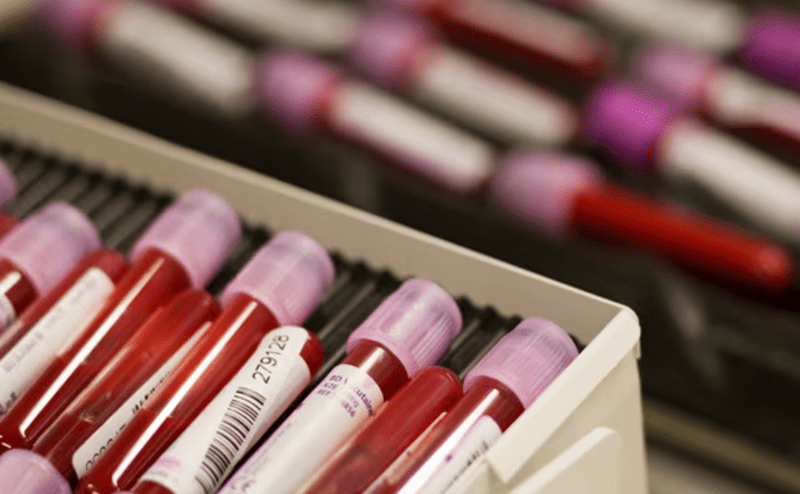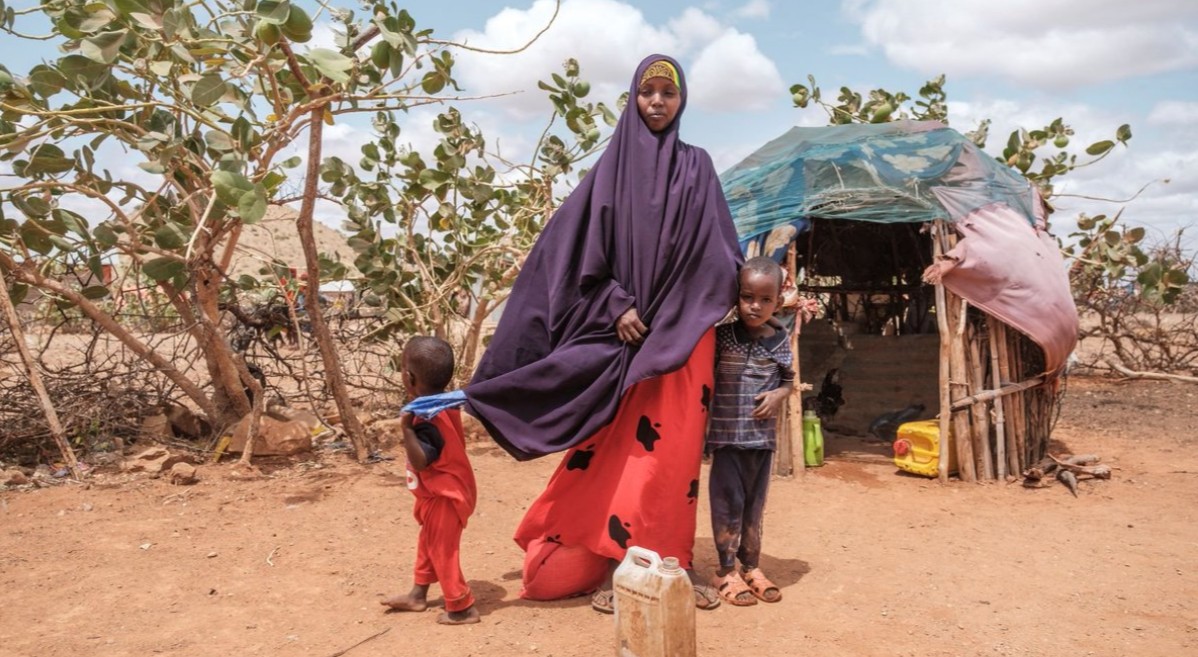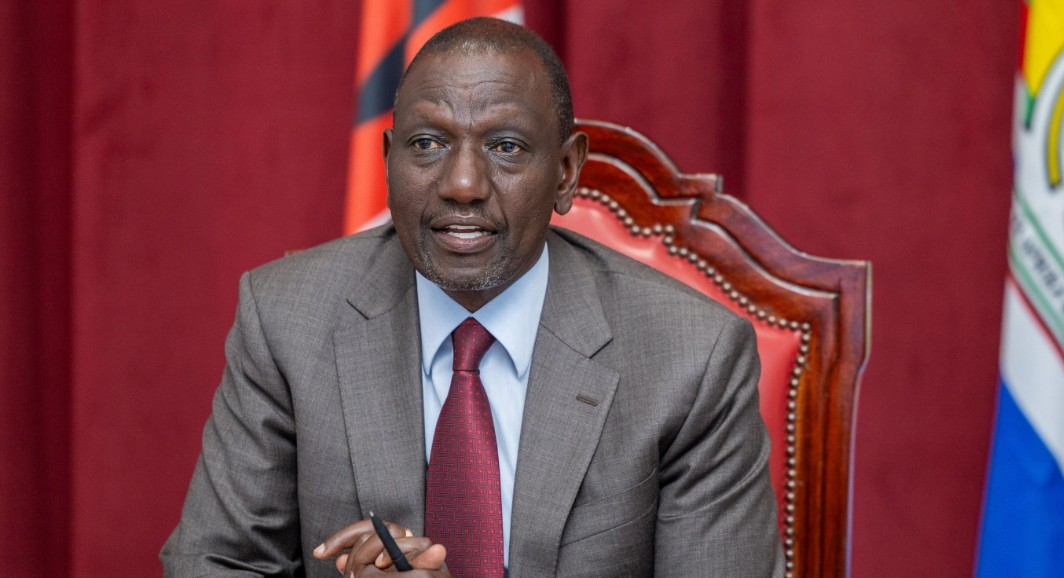Inside the ICU: Nurse's daily fight to save lives amid grief, shortages, silent strength
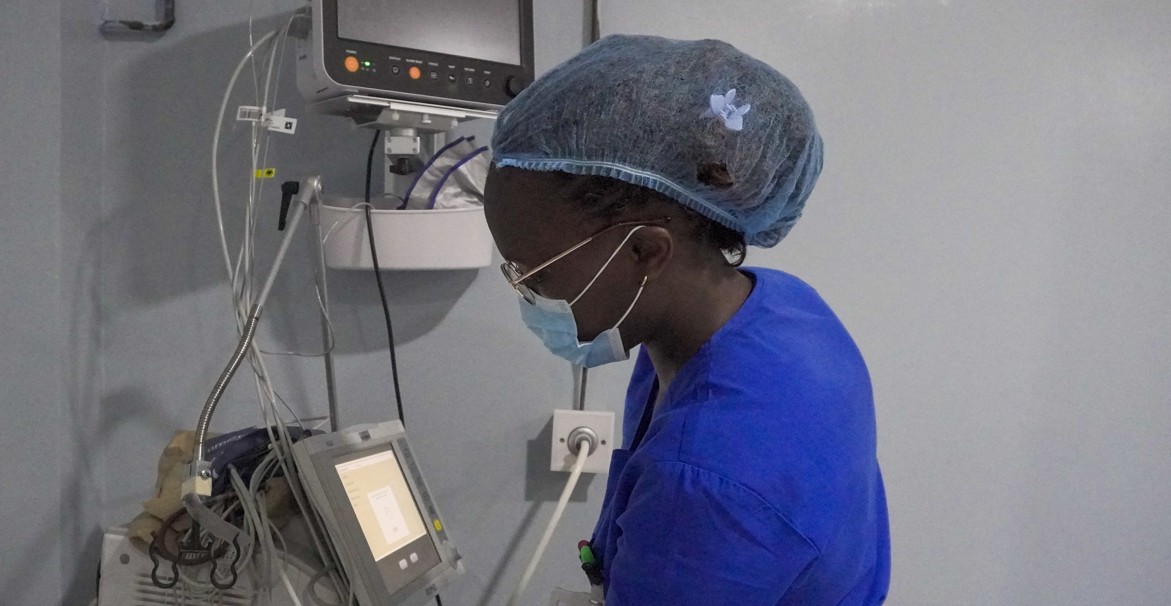
Nurses like Jackline Atieno form the backbone of the healthcare system, often serving as the first point of contact for patients and providing continuous, compassionate care throughout the healing process.
For intensive care unit (ICU) nurse Jackline Atieno, each day begins with urgency and uncertainty. She is met with critically ill patients—many in their final moments of life—surrounded by beeping machines, flashing monitors, and the chilling sight of equipment turning red.
The sharp, rhythmic clicks and warning tones echo through the ICU, each one signalling a drop in vitals, a failing organ, or a life slipping away. It’s a sound she associates with death inching closer—one she never gets used to. Families wait outside, holding on to hope, desperate for good news.
More To Read
- UHC staff to be transferred to counties by July 1, 2025 — Ministry of Health
- Nurses reject payroll shift to counties, vow to strike until pay and job demands met
- Explainer: Who are the striking UHC workers, and why are they protesting?
- UHC staff ordered to resume work as payroll shifts to counties in July
- Oluga calls for urgent reforms in blood services to avert crisis, boost UHC goals
- MPs, state officials could be forced to use public hospitals under proposed healthcare reforms
But despite the best efforts, not every patient makes it out alive.
While many families plead with the medical team to do everything possible to save their loved ones, others are forced to make the agonising decision to sign a Do Not Resuscitate (DNR) order. These are the moments that often leave Atieno feeling helpless and heartbroken.
A DNR order is a decision made by a person (or their family) saying that, if their heart stops or they stop breathing, they don’t want doctors to try to bring them back to life with things like CPR or machines. It’s usually made when someone is very sick and doesn’t want to go through more medical treatments.
“As a nurse, you want to do everything to help a patient survive,” she says. “When a family chooses no resuscitation, it breaks me inside—but I’ve learned to respect their wishes.”
Patients admitted to the ICU are typically in critical condition. After assessing their situation, Atieno and the team must relay the prognosis to the family, helping them make immediate and sometimes final decisions.
“There are cases where the family just wants their loved one to rest, especially after long periods of suffering,” Atieno explains. “In those moments, I shift my focus to making sure the patient is calm, pain-free, and treated with dignity.”
In her career, she has witnessed at least 20 cases where families chose not to resuscitate. These experiences leave lasting impressions. Yet, each day, she puts aside her own pain and pressure to focus fully on saving lives—because in those life-or-death moments, that’s all that matters.
Maintain emotional boundaries
Constantly surrounded by both survival and loss, Atieno has learned to maintain emotional boundaries. She’s seen patients arrive conscious and hopeful, only to lose them hours later. It’s a harsh reality she faces daily.
Her nursing journey began long before formal training, caring for her siblings as a child, where she was affectionately called “a nurse in Trinidad.” That early compassion shaped her path, leading her to where she is today: at the heart of critical care, where strength, empathy, and endurance are not optional—they’re essential.
She became a licensed ICU nurse in 2019, and for the last five years, she has dedicated her life to caring for patients at Health Gate Hospital in Eastleigh. She acknowledges that nursing requires a lot of effort, both in school, at home, and at work.
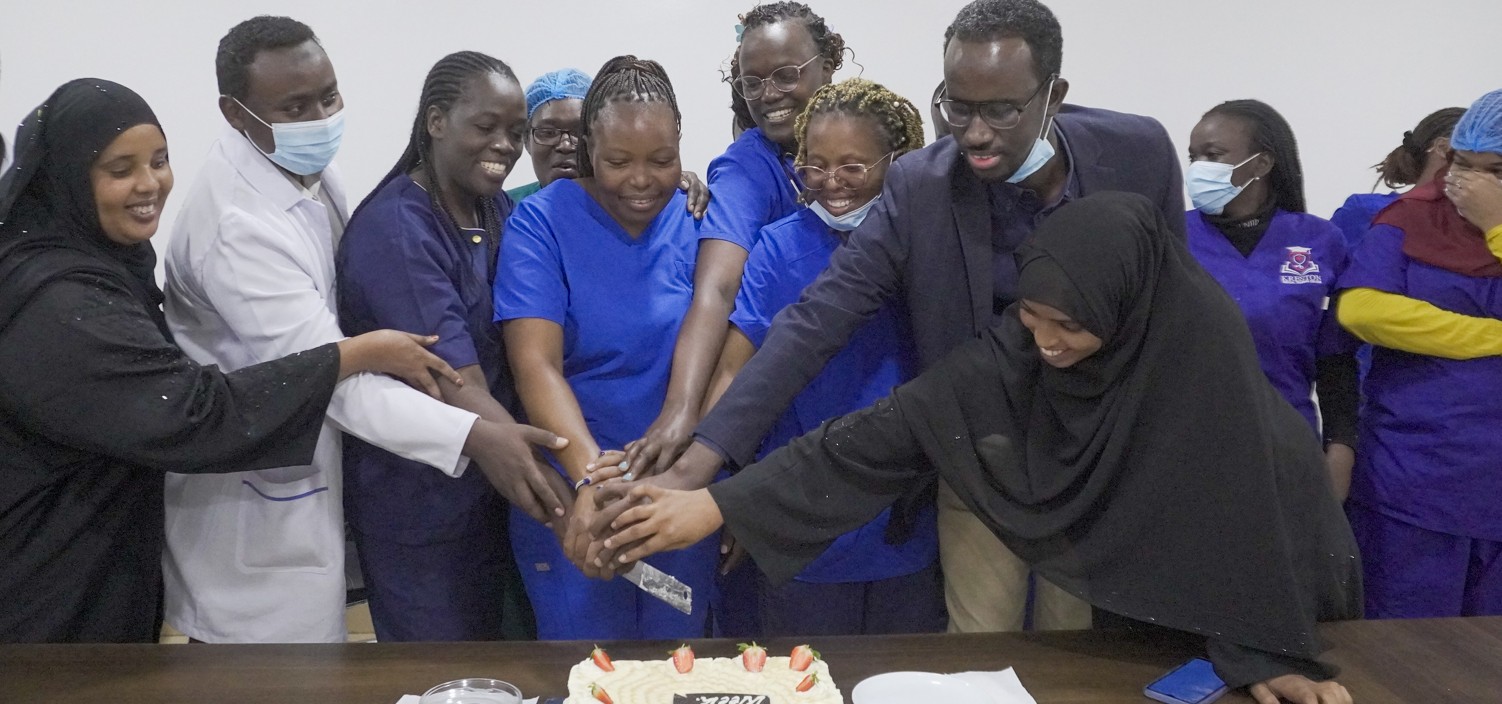 Nurses at Health Gate Hospital in Eastleigh cut a cake during the International Nurses Day celebrations on May 12, 2025. (Photo: Justine Ondieki)
Nurses at Health Gate Hospital in Eastleigh cut a cake during the International Nurses Day celebrations on May 12, 2025. (Photo: Justine Ondieki)
Her daily routine involves putting herself in the patient’s shoes, imagining how she would want her own loved ones treated. This mindset helps her stay strong during tough times. While there are difficult days, she finds that when patients begin to understand her care and intentions, things become easier.
“We face many challenges, like patients preferring specific nurses. But building a good relationship helps. Starting each day with a positive attitude, no matter how you feel, is key. Some patients may refuse to have you as their nurse, but you always have to find a way to work through it.”
She notes that sometimes situations are especially hard, like when you have a sick loved one of your own, but you're still expected to show up and care for others. It takes a lot of patience and emotional strength.
"You have to stay focused, deal with your own issues quietly, and rely on God. I always remind myself that God cares for me too, just as I care for others," she says.
Even when she’s grieving, she finds a way to channel her emotions into caring for her patients. And when those patients recover, that’s what truly keeps her going.
Helping a needy mother
She remembers a powerful moment from before she became an ICU nurse. A mother came into the facility carrying her 5-week-old baby with an infected umbilical cord. She had no money to pay for treatment, only 50 shillings, but her desperation was clear.
“When I saw the look in her eyes, I couldn’t turn her away. I cleaned the wound myself and taught her how to care for it at home,” Atieno recalls.
Two weeks later, the mother called her—this time to say thank you and to send 100 shillings as a small token of appreciation.
"She was so grateful, and to this day—five years later—she still calls me regularly just to thank me for saving her baby," she says with a smile. “Moments like those remind me why I do this work.”
Atieno says a common challenge nurses across the country face is the need for greater understanding that nurses are human too. Despite being trained professionals, they also have emotional limits and can become overwhelmed, especially when the nurse-to-patient ratio is stretched thin.
“Sometimes the workload is heavy, and we’re doing our best to care for many patients at once,” Atieno explains. “But even in those moments, we stay committed because we know how important our role is.”
Nurses like Jackline Atieno form the backbone of the healthcare system, often serving as the first point of contact for patients and providing continuous, compassionate care throughout the healing process.
In Kenya, however, nurses face significant challenges, with one of the most pressing being the shortage of staff.
Universal health coverage
The World Health Organisation (WHO) recommends a minimum of 23 healthcare workers per 10,000 people to achieve universal health coverage. Yet, Kenya falls well below this benchmark, with an average of just 8 nurses per 10,000 people. This gap is even more pronounced in many counties, where hospitals and clinics operate under severe staffing constraints, putting immense pressure on the existing nursing workforce.
The impact of this shortage is felt most deeply in rural health centres, where a single nurse may be responsible for over 100 patients in a single day. This overwhelming workload can lead to burnout and compromise the quality of care patients receive.
Adding to the strain is the steady migration of skilled nurses; around 600 leave Kenya each year for better opportunities abroad, further widening the gap in healthcare staffing.
Another contributing factor is the lack of sufficient training facilities and resources, which limits the number of new nurses entering the workforce. Even those who do make it into the profession often face long hours and emotionally demanding conditions, which can take a toll on both their physical health and mental well-being.
Despite these obstacles, Kenyan nurses continue to show resilience and dedication. Their ability to persevere under pressure is not just for their profession but for the lives they touch every day.
Top Stories Today

